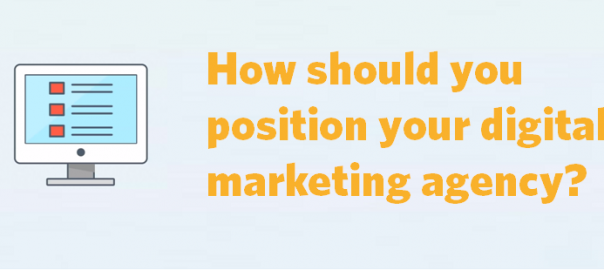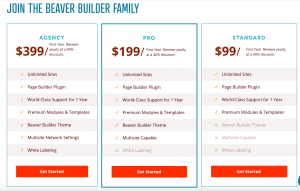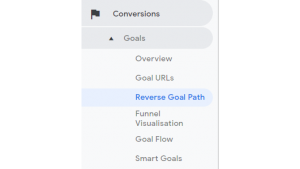
In an overcrowded industry, it can be difficult to figure out what separates one agency from another.
Many agencies make the same claims and use similar buzz words , so that, in spite of many wildly creative websites — there isn’t a great deal of differentiation on show. So, how should you position your digital marketing agency?
How should you describe your digital marketing agency or yourself as a digital marketing professional?
Are you a web agency, a digital marketing consultancy or a social media ninja?
Regardless of what services you offer, it’s likely your company tag-line includes one of the following five descriptors that outline you operate online: web, online, digital, social or content. Which of these you choose to highlight may depend on your legacy positioning (in 2005 ‘web/online agencies’ were common), your current specialism (for example, ‘social media’ or ‘content marketing’), or your desire to cover everything within the ‘digital’ sphere.
According to Luke Brynley-Jones, the exact terms you use to describe your agency will have an impact on how you are perceived:
“Everyone is looking for a digital marketing agency these days, but a lot of clients are actually after content, so that comes into play as a buzzword. ‘Social media’ is maybe slightly tainted by the lack of ROI [return on investment] perception that goes with it.”
Lilach Bullock believes that how you describe your business and services can have a dramatic effect on whether or not your agency is successful or not:
“I think how you position your services is really important. Whether or not you want to stand out and offer something that isn’t popular – but you think offers huge potential – is up to you, but I think it’s kind of risky”. She is very clear about the terminology they use: “What I now tell people is that we’re a digital marketing and content agency. We don’t actually use the words ‘social media marketing agency’ anymore”.
Job titles can also have an impact on how you are perceived. In recent years we have seen job titles evolve from the hierarchical (e.g. ‘VP, Digital & Brand Communications’) to the functional (‘Digital Marketing Manager’) to the ridiculous (‘Customer Happiness Czar’).
How these titles are perceived will depend on the client, but get it wrong and you risk being out of step with your peers.
According to marketing blogger, Andrew Hutchinson, most professionals stick with a traditional title, but these can sometimes carry negative connotations:
“they can seem stale – social media is dynamic and fresh, and some of these traditional attributions can evoke the smell of mothballs and leather-bound books”. He does add, though, that including the word ‘ninja’ or ‘Czar’ in your job title “can be seen as amateurish, confusing or, at worst, annoying”.
How important is it that your services are connected or overlap?
Combining services that integrate closely — for example, offering web design with content and email marketing — is usually appealing for clients, who only have to deal with one agency, and for the agency, for which there are obvious economies of scale. Similarly, offering multiple services within an integrated strategy has the appeal of maximising the impact of a client’s budget within a single, combined activity. The management overhead is reduced, as is the risk of different marketing campaigns getting out of synch.
The benefits of service layering
Similar to offering integrated services is the practice of ‘service layering’. The concept is simple: as you succeed with one marketing activity, you start to integrate related activities, gradually building up into a full digital marketing strategy. From an agency perspective this involves layering services as a client’s needs are ascertained. Constant Contact describes it as ‘prioritising the most needed service first and adding more as a client’s requirements evolve.’
Tamsin Fox-Davies explained in our ‘Growing your digital marketing agency: what services to offer’ webinar that for smaller businesses it can be overwhelming to be offered everything at once. Offering services in layers may be a better approach and, if your company doesn’t offer some of the services, service layering provides the perfect opportunity for outsourcing.
By managing one outsourced element of your activities you can ‘fill the gaps’ between your services, enabling you to retain the client and expand the range of your services. According to Tamsin:
“even if you’re not actually doing it yourself, if you have the knowledge to put the strategy in place and manage the delivery of that service, you can ensure client longevity”.
It may be a logical and profitable process, but to most small agencies and consultancies, service layering still isn’t a conscious practice. As Vee Smith of My Super VA, says, offering clients new services tends to be less forced and more gradual,
“I find it quite natural to say, “what about doing this?” But it’s not something that I consciously do; when it happens, it’s case by case”.
For an in-depth guide to this topic, you can download our latest white paper: Growing Your Digital Marketing Agency; What services should you offer, which features insights and advice from some of the UK’s top digital marketing experts.
Digital & Social Articles on Business 2 Community(138)
Report Post







